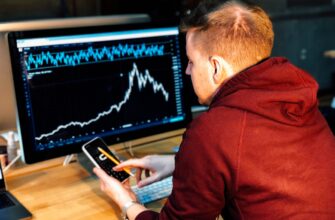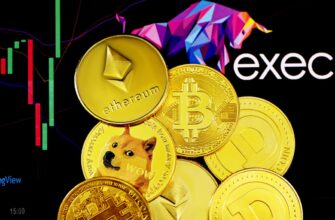Introduction
With Binance Coin (BNB) becoming a cornerstone of the crypto ecosystem, many investors wonder how to leverage it to acquire Bitcoin – the original cryptocurrency. This comprehensive guide walks you through exactly how to buy Bitcoin with BNB efficiently, covering exchanges, security practices, and cost-saving strategies. Whether you’re diversifying your portfolio or entering the crypto market, using BNB streamlines the process while potentially reducing fees.
Step-by-Step: How to Buy Bitcoin Using BNB
Follow these detailed steps to convert your BNB to Bitcoin securely:
- Create/Link Your Exchange Account: Sign up on a BNB-supporting exchange like Binance, Crypto.com, or KuCoin. Complete KYC verification for full access.
- Deposit BNB into Your Wallet: Transfer BNB from your external wallet to your exchange account using the BNB deposit address. Confirm network compatibility (BEP-2 or BEP-20).
- Navigate to Trading Pairs: Go to the ‘Markets’ or ‘Trade’ section and select the BNB/BTC trading pair. Ensure you’re on the spot trading interface.
- Place Your Buy Order: Choose between:
- Market Order: Buy instantly at current prices
- Limit Order: Set your desired BTC price (better for volatility)
Enter the amount of BNB you wish to exchange.
- Confirm and Execute: Review fees and transaction details, then confirm the trade. Your Bitcoin will appear in your exchange wallet.
- Secure Your Bitcoin: Withdraw BTC to a private hardware wallet (e.g., Ledger, Trezor) for maximum security.
Why Use BNB to Purchase Bitcoin?
BNB offers distinct advantages for Bitcoin acquisition:
- Reduced Fees: Binance users enjoy 25% lower trading fees when paying with BNB.
- Faster Transactions: BNB’s blockchain processes transactions quicker than traditional payment methods.
- Portfolio Optimization: Convert BNB profits into Bitcoin’s relative stability without fiat conversions.
- Ecosystem Integration: Seamless swaps within Binance Smart Chain (BSC) decentralized exchanges like PancakeSwap.
Critical Considerations Before Trading
Before exchanging BNB for Bitcoin, evaluate these factors:
- Volatility Risk: Both cryptocurrencies can fluctuate significantly during transactions. Use limit orders to control price points.
- Exchange Fees: Compare platform fees – Binance charges 0.1% spot trading fee (0.075% with BNB discount), while decentralized exchanges may have higher slippage.
- Security Protocols: Enable 2FA, whitelist withdrawal addresses, and avoid public Wi-Fi during transactions.
- Tax Implications: Crypto-to-crypto trades are taxable events in most jurisdictions. Maintain detailed records.
- Network Congestion: During peak times, BSC transactions may slow down. Adjust gas fees accordingly.
Frequently Asked Questions (FAQ)
Q: Can I buy Bitcoin with BNB without an exchange?
A: Yes, through decentralized exchanges (DEXs) like PancakeSwap or 1inch. Connect your Web3 wallet, select BNB/BTC pairs, and swap. Note: DEXs often involve wrapped BTC (e.g., BTCB) rather than native Bitcoin.
Q: What’s the minimum BNB required to buy Bitcoin?
A: Minimums vary by platform. Binance allows trades starting at 0.001 BTC (~$30 equivalent in BNB). Check your exchange’s requirements.
Q: How long does a BNB-to-Bitcoin transaction take?
A: Typically 2-5 minutes on centralized exchanges. DEX swaps may take longer depending on network congestion and slippage tolerance.
Q: Are there cheaper alternatives to buy Bitcoin?
A: Direct bank transfers often have lower fees, but BNB remains cost-effective for existing holders due to Binance’s fee discounts and no conversion charges.
Q: Can I reverse a BNB/BTC transaction if I make a mistake?
A: Blockchain transactions are irreversible. Always double-check addresses and amounts before confirming.
Q: Is buying Bitcoin with BNB available worldwide?
A: Most platforms support global users, but regulatory restrictions apply in some countries (e.g., partial limitations in the USA). Verify local compliance.
Q: Do I need a separate wallet for Bitcoin after purchase?
A> While exchanges provide custodial wallets, transferring BTC to a private wallet significantly enhances security against exchange hacks.








